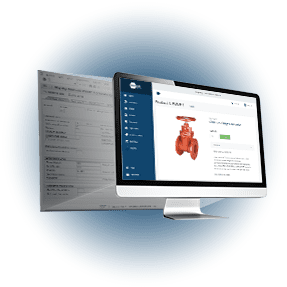Share
Author
Corevist Marketing Team
Share
In the world of business-to-business (B2B) ecommerce, managing costs is paramount to maintaining profitability and competitiveness. B2B ecommerce has revolutionized the way companies conduct transactions, but it has also introduced new cost drivers that require careful attention. In this blog post, we’ll explore some of the common causes of cost drivers in B2B ecommerce and discuss strategies to mitigate them.
Complexity of Product Catalogs
One of the primary cost drivers in B2B ecommerce is the complexity of product catalogs. B2B manufacturers often deal with a vast array of products, each with various attributes, pricing tiers, and configurations. Managing these product catalogs and keeping them up-to-date can be a resource-intensive task. Automation and robust product information management (PIM) systems can help streamline this process, reducing labor costs and errors.
Integration Challenges
Many B2B ecommerce platforms need to integrate with existing enterprise resource planning (ERP) systems, customer relationship management (CRM) software, and other internal systems. Integration challenges can drive up costs, as custom development and ongoing maintenance are often required. Investing in a flexible and well-documented integration strategy can help mitigate these costs over time. Corevist offers a robust B2B ecommerce platform that is designed to seamlessly integrate with existing ERP systems, including SAP S/4HANA. By using Corevist’s platform, B2B companies can significantly reduce the complexities and costs associated with integration. The platform provides pre-built connectors and a proven integration framework that streamlines the process, saving both time and money.
Order Complexity
B2B transactions can involve complex order configurations, with various shipping options, pricing tiers, and discounts based on factors like order volume or customer history. Handling these complexities manually can lead to errors and increased labor costs. Implementing a robust and configurable order management system can automate much of this process, reducing costs and improving accuracy.
Moreover, a configurable product feature within an ecommerce platform can enhance the efficiency of order processing. By automating the configuration and pricing aspects, businesses can streamline their order management processes, significantly reducing the need for manual intervention. This not only saves time but also minimizes the potential for errors that can occur when handling complex configurations manually.
In addition to efficiency gains, a configurable product feature provides a user-friendly interface for customers to customize their orders. This enhances the overall shopping experience, fostering customer satisfaction and loyalty.
Customer Support
B2B customers often require a higher level of customer support due to the complexity of their orders and the need for personalized assistance. While providing excellent customer service is essential, it can be a significant cost driver if not managed efficiently. Investing in self-service tools, knowledge bases, and chatbots can help reduce the workload on your support team, saving costs without compromising service quality.
When customers can independently access and modify their orders through user-friendly interfaces, they are more likely to finalize purchases without the need for direct assistance. This not only streamlines the ordering process but also translates to faster transaction cycles and increased order throughput.
As customers utilize self-service tools to track order statuses, modify configurations, or retrieve information from knowledge bases, the demand on customer service teams decreases. This allows customer service representatives to redirect their focus from routine, time-consuming tasks to revenue-driving activities, such as identifying upsell or cross-sell opportunities, fostering customer relationships, and addressing more complex inquiries.
By empowering customers to manage their orders independently, businesses can create a more efficient and responsive customer service model. This shift towards self-service not only enhances customer satisfaction by providing instant access to information but also frees up valuable resources within the customer service team. This optimized allocation of resources can lead to a more proactive and revenue-focused approach, ultimately contributing to increased sales and business growth.
Security and Compliance
B2B ecommerce involves the exchange of sensitive data, including customer information, payment details, and proprietary product data. Ensuring the security and compliance of your e-commerce platform is critical but can also be expensive.
Implementing and maintaining a comprehensive cybersecurity infrastructure, along with ensuring compliance with evolving regulatory standards, is a considerable challenge for any business. The cost of investing in cutting-edge security protocols, regular audits, and the expertise required to stay ahead of cyber threats can be substantial.
By opting for an ecommerce platform that inherently integrates robust security features, you are essentially transferring a substantial portion of this responsibility to a specialized service provider. These platforms are engineered to adhere to the highest security standards, employing encryption, authentication protocols, and monitoring systems to safeguard sensitive data.
This not only shields your business from the financial fallout of potential data breaches but also mitigates the risk of legal consequences resulting from non-compliance with data protection regulations. With the constantly evolving landscape of cybersecurity threats, relying on a dedicated ecommerce platform allows your business to leverage the expertise of professionals whose core focus is to stay ahead of emerging security challenges.
Moreover, a secure ecommerce platform provides peace of mind to both your business and your customers. Clients are more likely to trust a platform that prioritizes their data security, leading to enhanced brand reputation and customer loyalty.
Scalability Challenges
As your B2B ecommerce business grows, so do the associated costs. Scaling up infrastructure, hiring additional staff, and expanding product lines can strain your budget. It’s essential to plan for scalability from the outset and regularly assess your systems and processes to ensure they can support growth without causing undue financial strain. Scalability challenges and the need for technology upkeep can strain a B2B ecommerce business’s budget. Corevist’s platform is designed to be scalable, allowing businesses to grow without incurring disproportionate costs. Additionally, Corevist continually updates and enhances its platform to keep pace with evolving technology. By partnering with Corevist, businesses can ensure they have access to the latest innovations in B2B ecommerce technology without the expense of constant system upgrades and maintenance.
Supplier and Inventory Management
In B2B ecommerce, effective supplier and inventory management are vital for meeting customer demands and minimizing costs. Poorly managed inventory can lead to overstocking, understocking, or costly rush orders. Employing inventory management software and data analytics can optimize inventory levels, reduce carrying costs, and enhance overall efficiency.
Technology Upkeep
Technology evolves rapidly, and B2B e-commerce platforms must stay current to remain competitive. Failing to invest in regular updates and improvements can lead to increased costs in the long run, as outdated systems become more challenging and expensive to maintain.
As technology continues to evolve at a rapid pace, the maintenance and upkeep of an e-commerce platform become increasingly complex over time. Deploying and managing a fully managed e-commerce platform offers a solution to this challenge, especially for manufacturers whose primary expertise lies outside the realm of technology provision.
The intricacies of ongoing technology maintenance, including software updates, security patches, and performance optimizations, demand a specialized skill set. For a manufacturer focused on their core competencies, diving into the intricacies of IT management can be a diversion from their primary objectives.
A fully managed ecommerce platform, often provided as a service by dedicated tech providers, takes the responsibility of technology maintenance off the manufacturer’s shoulders. These platforms come with the assurance that they are equipped with the latest updates, security protocols, and performance enhancements. This not only ensures the longevity and scalability of the e-commerce infrastructure but also allows the manufacturer to channel their resources and efforts into areas where their expertise truly lies.
By entrusting the management of the e-commerce platform to experts, manufacturers can mitigate the risks associated with technology obsolescence. This proactive approach not only prevents the platform from becoming a bottleneck in the future but also frees up internal resources that can be redirected towards innovation, product development, and other critical aspects of their business.
How to Address These Cost Drivers While Pushing for Ecommerce
In the ever-evolving landscape of B2B ecommerce, recognizing and mitigating cost drivers is pivotal for sustained success. The insights provided in this blog post shed light on prevalent cost drivers like intricate product catalogs, integration hurdles, and complex order processes. Strategic initiatives to address these challenges empower businesses to streamline their operations and uphold profitability.
By proactively tackling these issues, B2B ecommerce companies can position themselves for success through careful planning, targeted technological investments, and a steadfast commitment to operational efficiency. Addressing challenges like product catalog complexity and integration issues allows businesses to optimize their processes, creating a more seamless and cost-effective ecommerce environment.
Furthermore, investing in a fully managed e-commerce platform emerges as a key strategy in this optimization journey. By entrusting the complexities of technology management to experts, such as a fully managed ecommerce platform, manufacturing companies can redirect their core resources to what they excel in—developing superior products and serving their customers. This strategic shift enables key personnel to concentrate on their strengths while the managed ecommerce platform works in the background to positively impact revenue.










